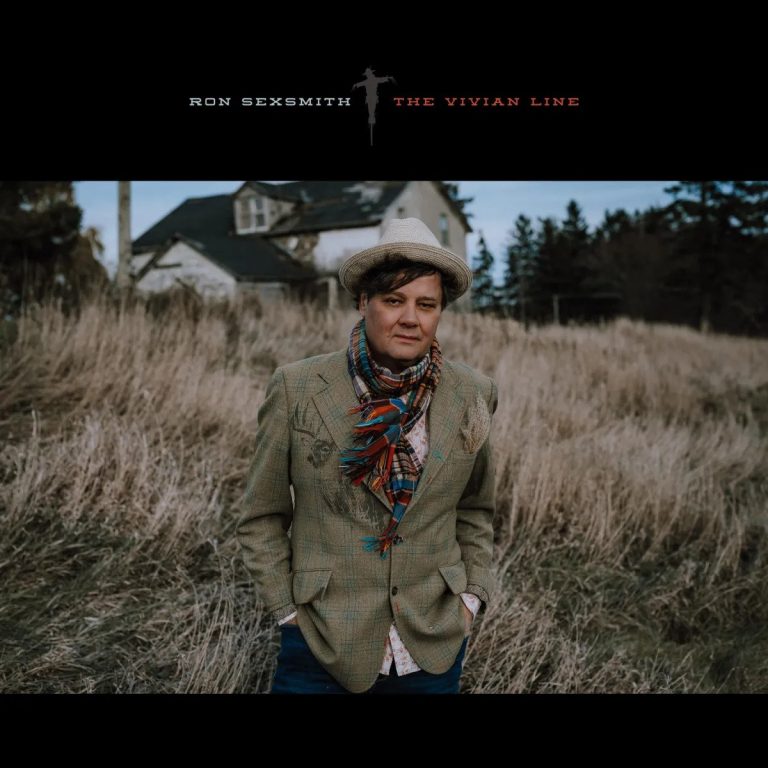Some musicians are just born with an innate understanding of how to unravel the grand mysteries of melody. Brian Wilson and Burt Bacharach are two giants of the form and, in the prime of their careers, were able to create songs so dizzyingly catchy and memorable that we still look to them as totems of 20th century musical theory. Few artists can lay claim to the kind of effortless beauty conjured by these two icons, but Canadian songwriter Ron Sexsmith has more than proven his musical credentials with over 15 albums released over 30 years. Possessing a quivering voice that can break your heart as it draws back the darkness around you, he’s long been overlooked as one of the greatest popsmiths of the last few decades.
With each new album, he refines and further cultivates his blend of ecstatic melodies and deceptive narrative simplicity. The people in his songs aren’t exactly faced with apocalyptic choices – they are tasked with wading through the minor instances of their lives and maybe exploring one of two moments of significance, altering their world while finding love, losing faith, and exploring what it means to keep your heart situated permanently on your sleeve. Few artists can offer such honest sentiment without descending into of the throes of tacky, gooey sentimentality. Whether confronting our own mortality or the pangs of new love, Sexsmith invests each moment with a raw candor and emotional vulnerability.
The opening track, “Place Called Love”, from his latest album, The Vivian Line – named for a road not too far from Sexsmith’s home in Stratford, Ontario – perfectly encapsulates his tunesmith ideology. Everything is in service to melody and to the ways in which it divines personal response to internal and external stimuli. It’s difficult to imagine any other artist who can turn the saccharine superficiality of a line like “Somewhere in the darkest night / there’s a place called love” into a sincere acknowledgement of hope and reconciliation. His voice shakes and quivers while an acoustic guitar is plucked and shuffling drums dance around baroque flourishes. The melody turns, twists, and confounds our senses, even as it never seems to call all that much attention to itself.
He excels at finding wonder and gravitas in everyday mundanity, with “What I Had in Mind” detailing the clash between our youthful expectations and reality, set to a jaunty, jangly thump that feels timeless and sounds like something that could have been released by The Mamas and the Papas or Sagittarius back in the 60s. He addresses endings on “Flower Boxes”, a song that documents the small reminders of what once was and how we can move to what will be, finding… if not happiness, then something approximating the acceptance of loss and setting a memorial for the memory of the departed. Soft flute melodies bend and curl around plucked guitar strings while a voice that feels aged by loss and time reminds us to find the light in what is left behind.
He’s unsure of himself and the way he perceives the world on “Outdated and Antiquated” – it reminds me of “The Break Up Song” by The Greg Kihn Band by the way it creates a laudatory version of the past while bemoaning the ways in which the years have shifted musical focus. But it’s less old-man-shaking-a stick-at-youngsters than it is a nostalgic look at what once was and how those perceptions influenced his outlook. It’s a melancholy, thoughtful pop song that holds no animosity toward the changes it narrates; rather, it recalls a golden time when familiarity led to certain choices and how those decisions shaped his music.
The album falters slightly on the back end, with “This, That, And the Other Thing” and “A Barn Conversion” falling to weaker melodies and lyrical dullness. They wouldn’t even stand out as much except for the fact that they run back-to-back, and in the wake of such remarkable pop offerings, these songs can’t help but feel slight by comparison.
The centerpiece of the album, however, is “Diamond Wave”, a lush, melodically rich song that perfectly blends unassuming sentiment with a melody that ranks as one of his best. He sings the lines “Take a look at me now, I’m feeling good / All I know is somehow, I’m feeling better than I thought I could” with such a radiant conviction that you can’t help but be swept up in its joyous motions. Weeks after I first heard it, it still echoes in my head, appearing without notice to brighten my day and remind me of the love that surrounds me.
The Vivian Line finds him treading familiar ground in terms of his pop proficiencies, but that doesn’t mean it lacks heart or authentic emotion. When an artist has developed such a remarkable musical identity over decades of work, there’s no expectation really (nor want) for them to change. Sexsmith labors over these songs, crafting genuine moments of heartache, love, and nostalgia. He is one of only a handful of musicians that have the capacity to mold these specific musical landscapes through an innate understanding of what makes these sounds so inclusive and memorable. It remains a mystery to me why his work isn’t more well-known, but for those who can appreciate his brew of melodic honesty and sentimental openness, The Vivian Line provides one of the purest pop experiences you’re likely to have all year.

